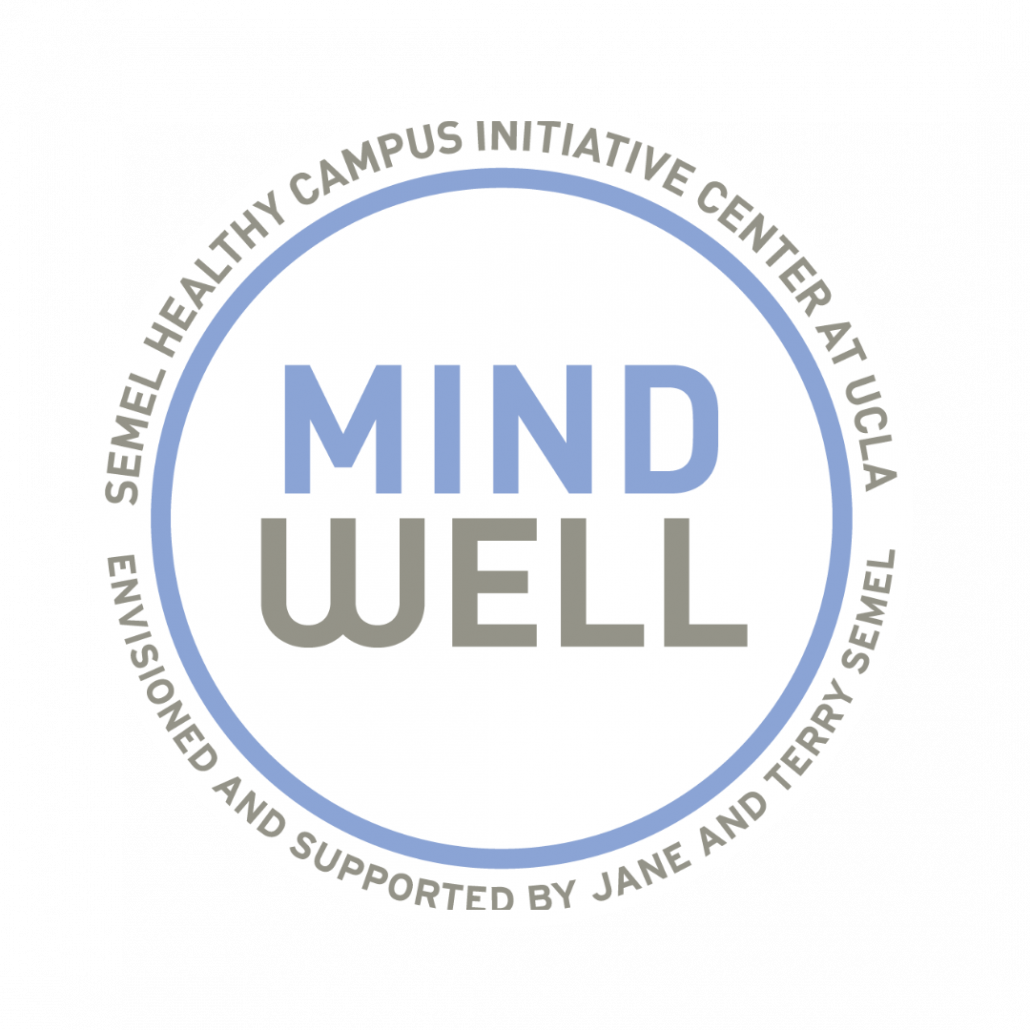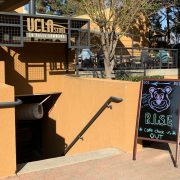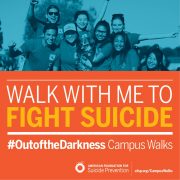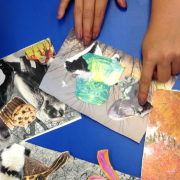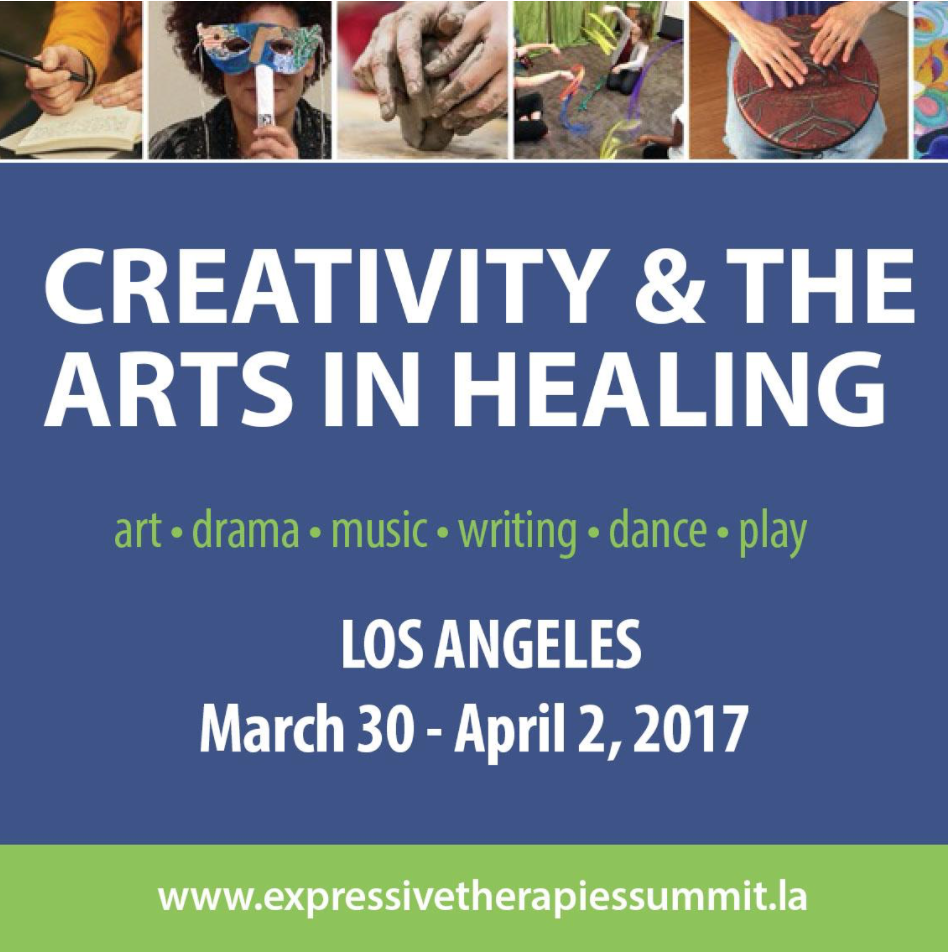Resilience on the RISE
2) An ability to recover from or adjust easily to misfortune or change.
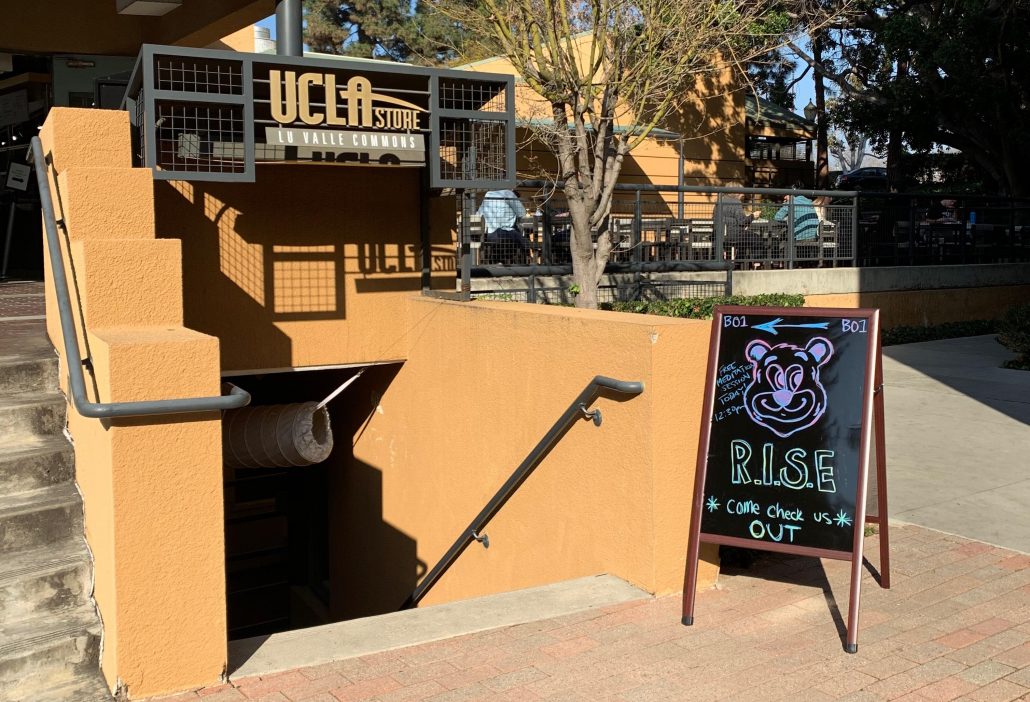
The Office of Campus and Student Resilience and Counseling and Psychological Services (CAPS) have created a “holistic wellness hub” on campus that provides a variety of programs, classes, trainings, and self-directed resources aimed at creating a greater sense of resilience on campus. This hub is called Resilience in the Student Experience (RISE) and is located on campus, downstairs at Lu Valle Commons room B-01. RISE serves as a physical extension of CAPS, and as part of its programming, RISE offers meditations, yoga, peer coaching, and other mind-body modalities.
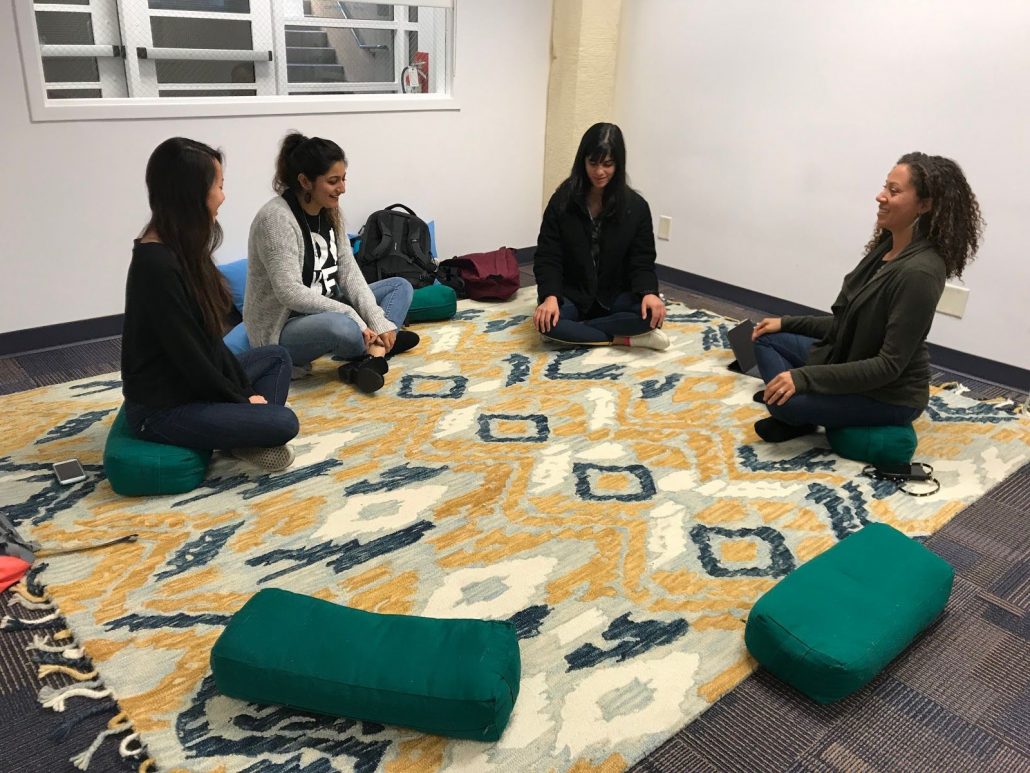
- Yoga as healing – trauma-informed yoga for survivors of sexual assault
- Weekly drop-in resilience sessions for all
- Mindful Ambassadors meetings
- Drop-in meditations for post doctoral students
- Weekly drop-in mindful nutrition for all
- GRIT coaching corner
- Wazo wellness series
- Mindfulness for women of color
- Healing expressed with art (HEART) for trauma survivors
- Weekly drop-in mindful self compassion break
- Fitwell yoga classes.
The RISE schedule is bursting with programs and opportunities that can meet our diverse student body where they are. And there’s no sign of slowing down; Dr. Allyson Pimentel, associate director of UCLA Campus & Student Resilience, tells me, “it’s only going to get better.”
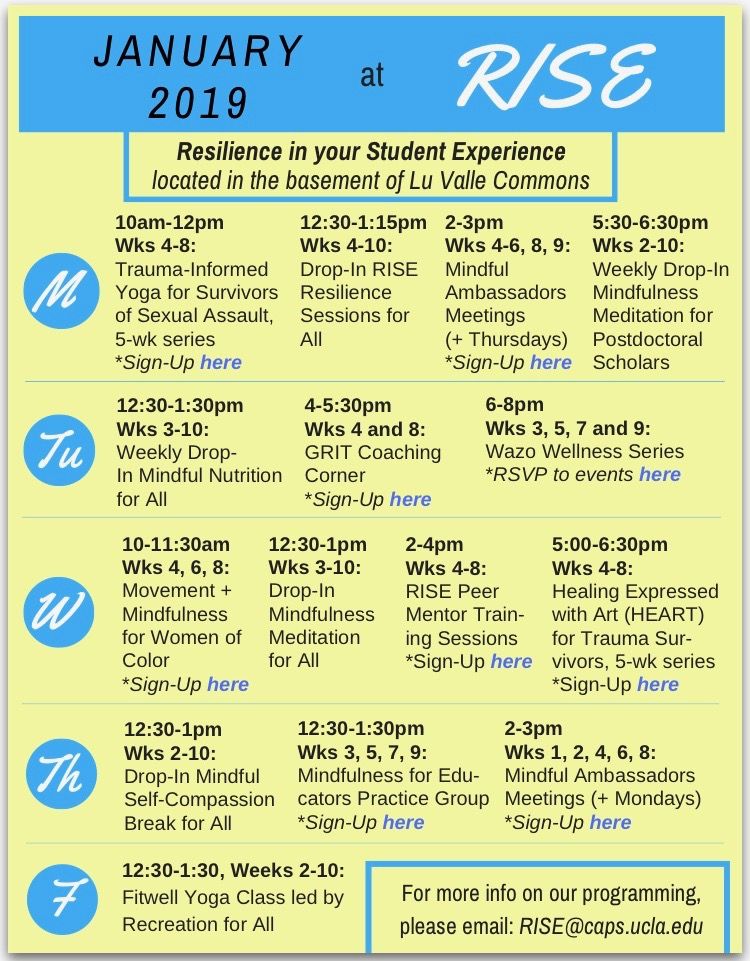
RISE has an upcoming 5 session training series, Training for Campus Peer Leaders, which is geared towards UCLA student leaders looking to learn more about resilience, how to support students in distress, and many other important topics. This workshop will be held every Wednesday from weeks 4-8, with each session lasting two hours. The sessions will be held in the basement level of Lu Valle Commons, room B-01. If interested in this particular workshop, you can learn more and sign up here.
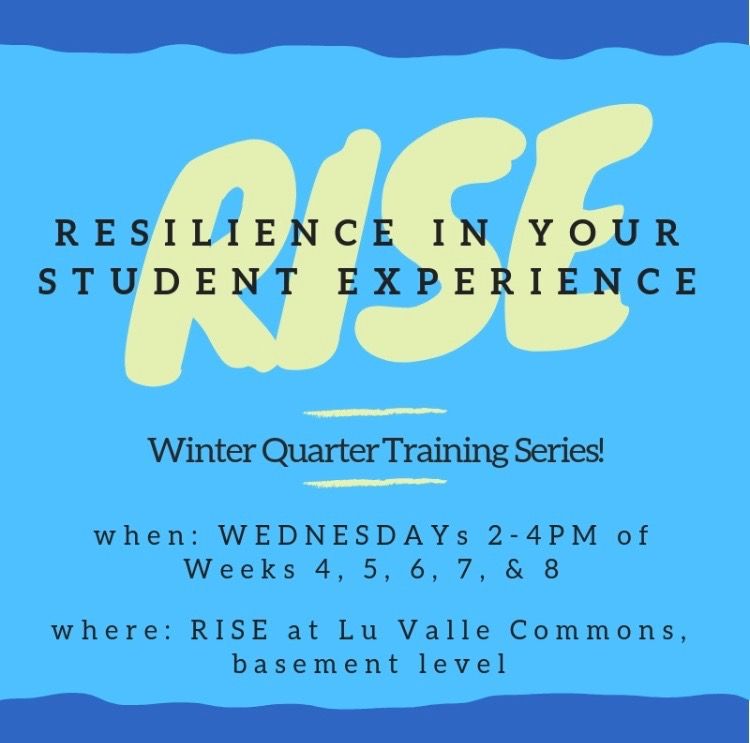
Check out the RISE space itself or come participate in some of the upcoming meditation sessions and workshops! For more information email RISE@caps.ucla.edu
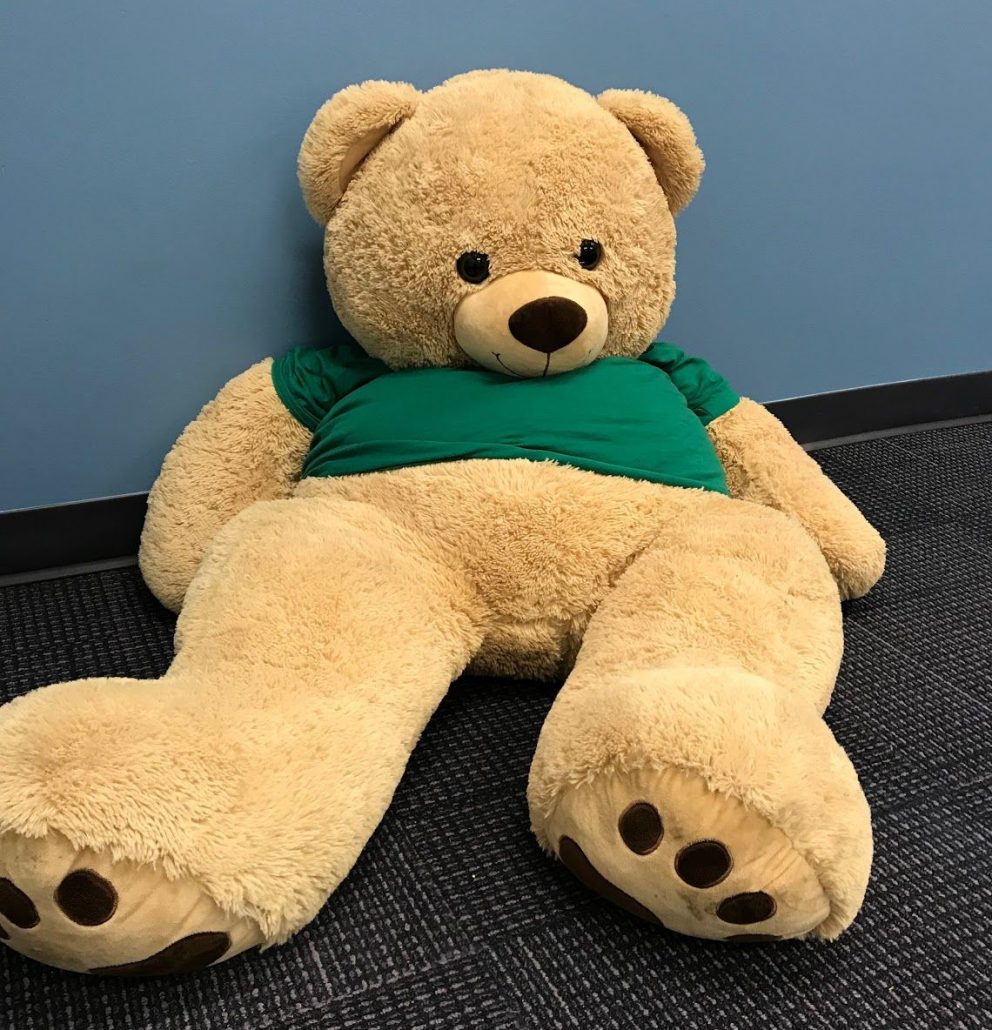
Aubrey Freitas is an undergraduate student at UCLA double majoring in English Literature and Psychology with a minor in Italian. She is a blogger for the Semel Healthy Campus Initiative Center at UCLA in the Mind Well section, which focuses on the importance of mindfulness and mental health. Aubrey is the founder of the organization Warm Hearts to Warm Hands, which teaches the skill of knitting to people of the community in return for their donation of an article of clothing they create with the skill, to be given to local homeless shelters.
